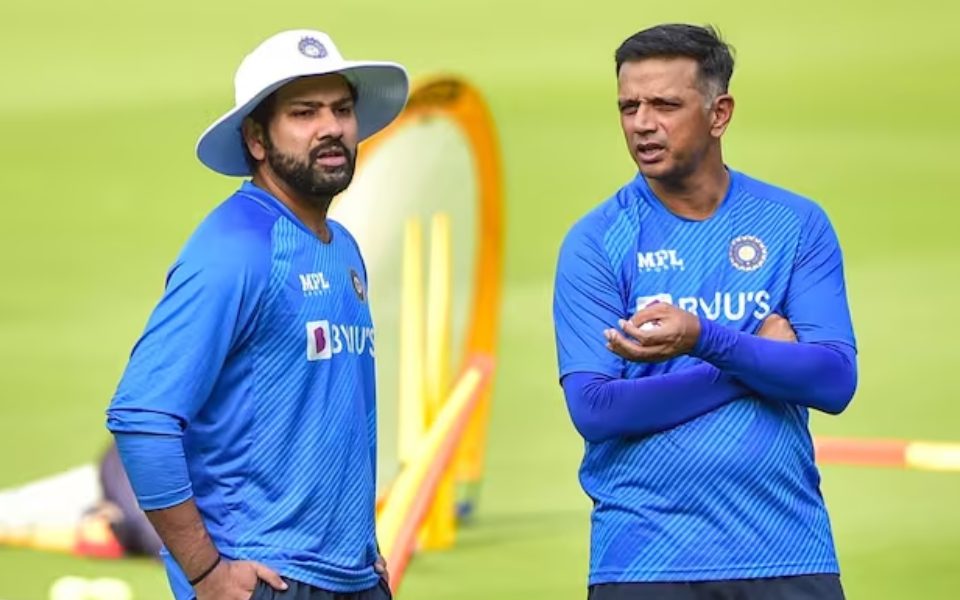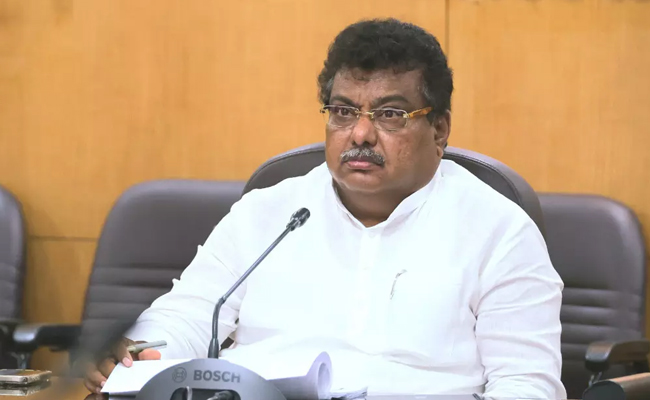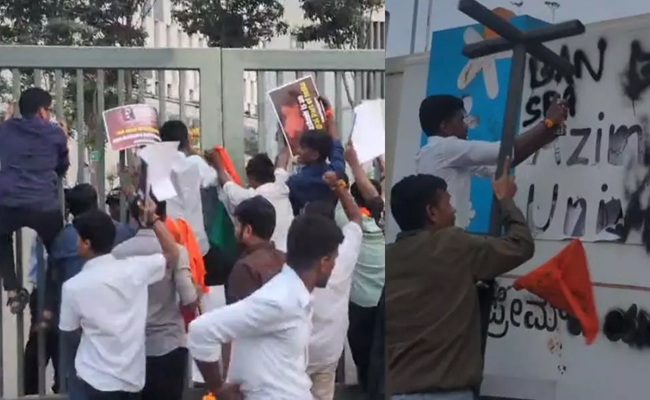Dharamsala, Mar 9: The future of out of favour cricketers Shreyas Iyer and Ishan Kishan has been debated loudly after BCCI omitting them from the central contract list, but India head coach Rahul Dravid on Saturday refused to close the door on them.
Kishan has not played any cricket after skipping the two-Test series against South Africa but he has been preparing for IPL along with Mumbai Indians' teammate Hardik Pandya at a private centre in Baroda.
Despite BCCI's stern directive to play domestic matches, Shreyas opted out of Mumbai's Ranji Trophy quarterfinal citing back spasms.
But he played in the semifinal against Tamil Nadu and is scheduled to appear in the final against Vidarbha from Sunday.
"They are always in the mix. Nobody is out of picture. Everyone who's playing domestic cricket is in the mix. It's just a question of, hopefully, them getting back and fit, playing cricket, and forcing the selectors to pick them again."
However Dravid steered cleared when the sensitive issue of central contract cropped up.
"I don't decide contracts, right? Contracts are decided by the selectors and the board. I don't even know what is the criteria (for inclusion). Me and Rohit select the (playing) 11. We have never discussed whether somebody has a contract or not. I don't even know what the list of the contracted players is," said Dravid in the post-match press-conference.
After India bagged the five-match series against England 4-1, BCCI secretary Jay Shah announced a 'Test Cricket Incentive Scheme' for players appearing in more red-ball cricket for the country.
Dravid hoped that the players would look at it as a reward for their hard work rather than another source to earn money.
"I really hope money is not going to be the incentive to play Test cricket. It's just the hard work and how tough Test cricket can be is being recognised.
"So, I wouldn't see it as an incentive to make people play Test cricket, I hope not. But it is nice that the BCCI is recognizing it. I think it is a reward, not an incentive," said the former Indian skipper.
He then proceeded to cite the example of veteran spinner Ravichandran Ashwin to validate his point.
"It takes a special person to do what Ashwin has done (rejoining the team after a personal emergency), to play 100 Tests, you go through a lot. We don't celebrate 100 T20Is in the same way, do we?
"It's only when you get here that you realise that sometimes it's quite tough, but it is extremely satisfying (to play Tests). If they are well supported and well documented, I am sure there will be a lot of people still wanting to play Test cricket," said Dravid.
Let the Truth be known. If you read VB and like VB, please be a VB Supporter and Help us deliver the Truth to one and all.
Bengaluru (PTI): Karnataka Minister M B Patil on Tuesday chaired meetings with industry representatives from the aerospace and defence, machine tools, auto/EV, and green energy sectors to discuss sector growth and government support measures.
The meetings were attended by leading industrialists and their representatives, with some participating virtually.
Speaking on the occasion, the minister for Large and Medium Industries said Karnataka is at the forefront of the country’s aerospace and defence sectors.
He noted that Suzuki and Toyota plan to launch aerial taxi services in Japan by 2028, with Bengaluru-based Sasmos supplying electrical equipment for the project.
Industrialists suggested introducing similar “fly-taxi” services in Karnataka through an appropriate policy, which Patil said would be examined seriously.
The minister highlighted the need to establish testing centres and Common Facility Centres for the aerospace and defence industries and assured that these facilities would be provided.
Suggestions were also made to prepare a comprehensive roadmap for sector growth.
Karnataka has urged the Central Government to approve Defence Corridor projects in the Bengaluru North–Kolar–Chikkaballapur and Dharawada–Vijayapura–Belagavi regions.
Industrialists also suggested a corridor between Bengaluru and Mysuru, Patil said.
He said Karnataka aims to become a hub for defence electronics manufacturing, with plans to establish a 200-acre Defence Electronics Park and a 100-acre Avionics and Sensor Park.
These projects will be implemented once the Special Investment Region is operational, and land availability will not be an issue.
On the machine tools sector, Patil said the industry has recorded an annual turnover of Rs 36,500 crore and is witnessing steady growth.
Large-scale exhibitions have increased demand, and the state must strengthen its capabilities to develop control systems for heavy machinery. One testing unit is already operational in Bengaluru, with another planned for Tumakuru. Expansion of vocational training institutes in industrial areas is also underway.
In the Auto and EV sector, Vision Group members highlighted the need for a network of dry ports and more EV charging stations across the state.
Patil noted that the Tata Group is manufacturing EV buses in Dharawada for nationwide supply. Plans for mini excavator production and export facilitation were also discussed, along with the establishment of a testing facility for two-wheeler EVs.
For the Green Energy sector, the group emphasised the need for a suitable policy on battery-based energy storage and the establishment of data centres.
Patil assured that the government will seriously consider all suggestions and respond positively.





_vb_21.jpeg)